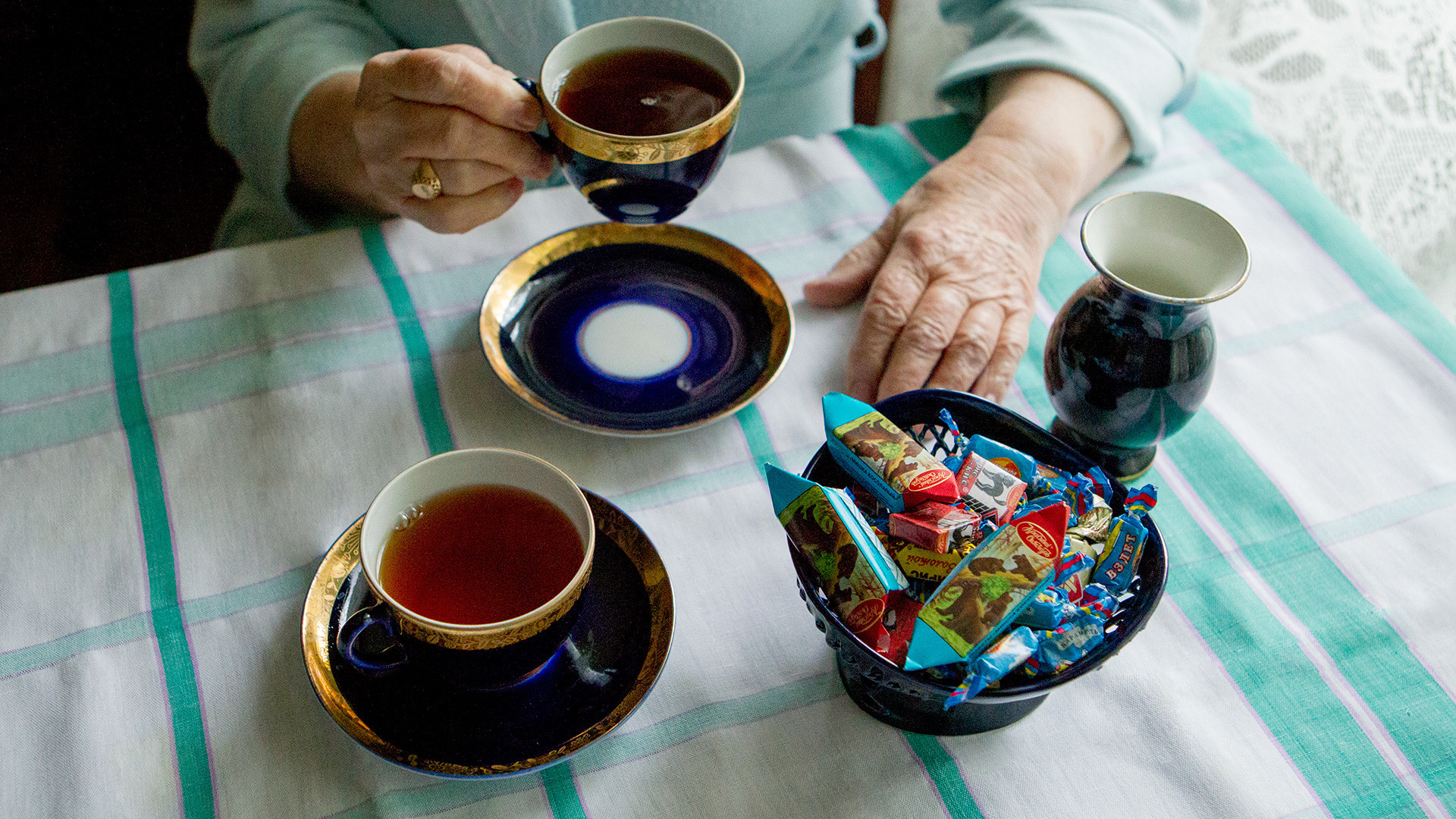
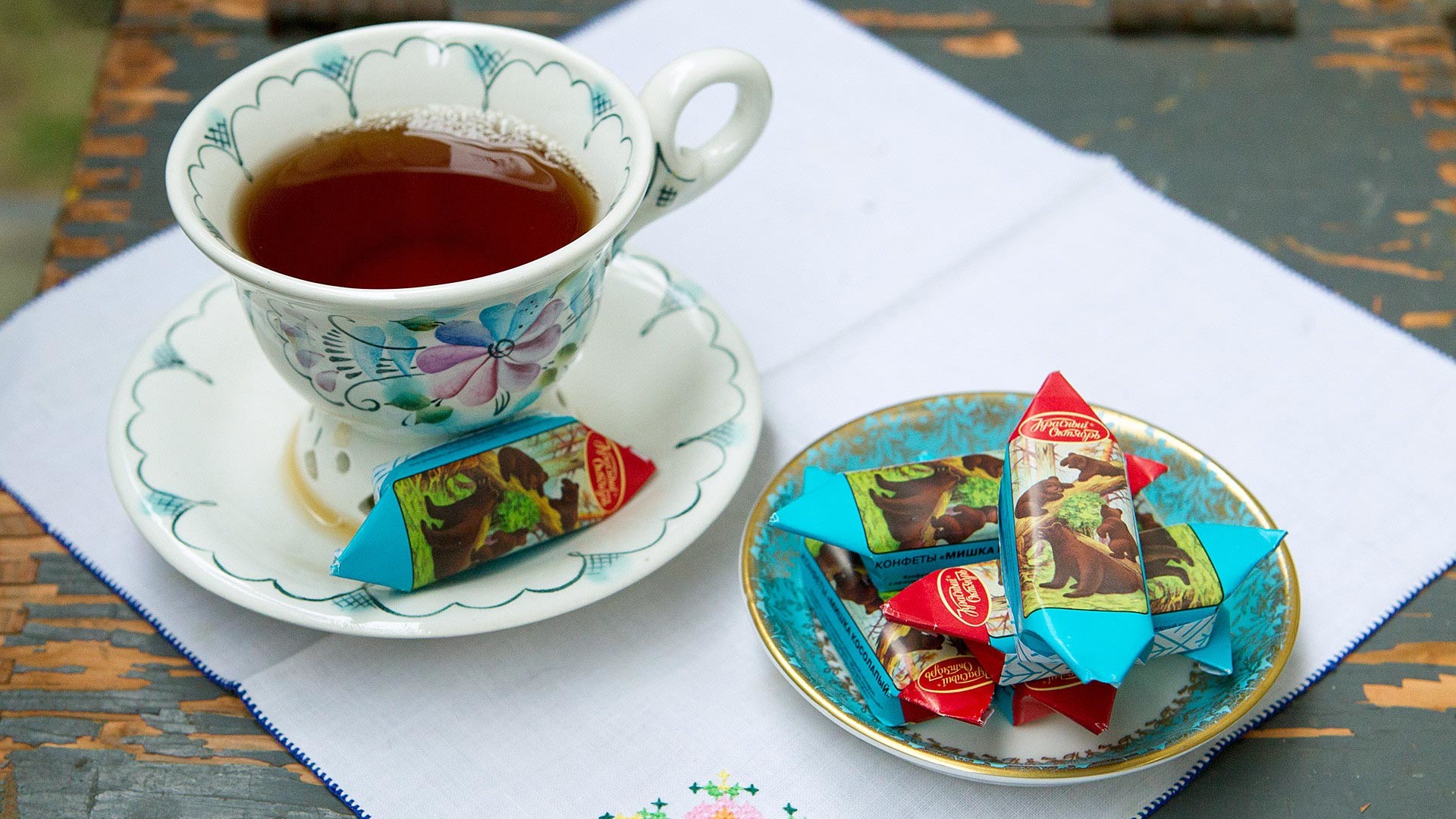
If you decide to buy candies in Russia, go straight for these; at the very least because they've been the most popular since Soviet times. Their main delight has to do with the two wafers that have a praline paste of roasted grated almonds and vanilla flavoring, coated with dark chocolate.
The candy has also been loved for its bright wrapper with a fragment from an Ivan Shishkin painting, Morning in a Pine Forest. Some Soviet families even decorated their Christmas tree with these candies.
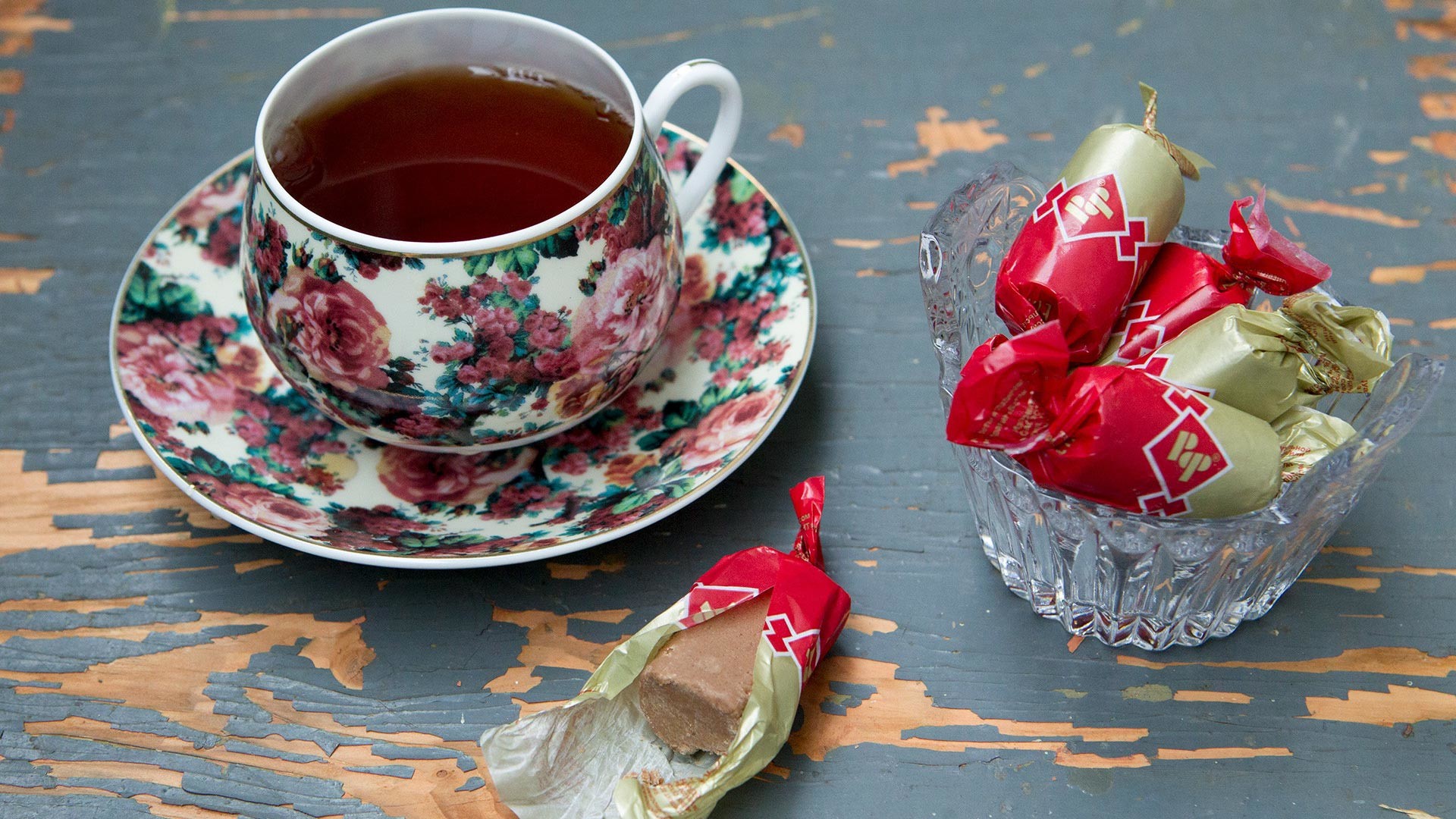
Once, when I was a child, I ate so many of these that I couldn’t look at one again for… a couple of days. Then, predictably, I couldn't contain myself and ate some more because they're so delicious.
The bars consist of a creamy nutty confection with cocoa and wafer crumbs. It's best to have them with hot tea - they virtually melt in your mouth after a couple of sips and leave a pleasant aftertaste.
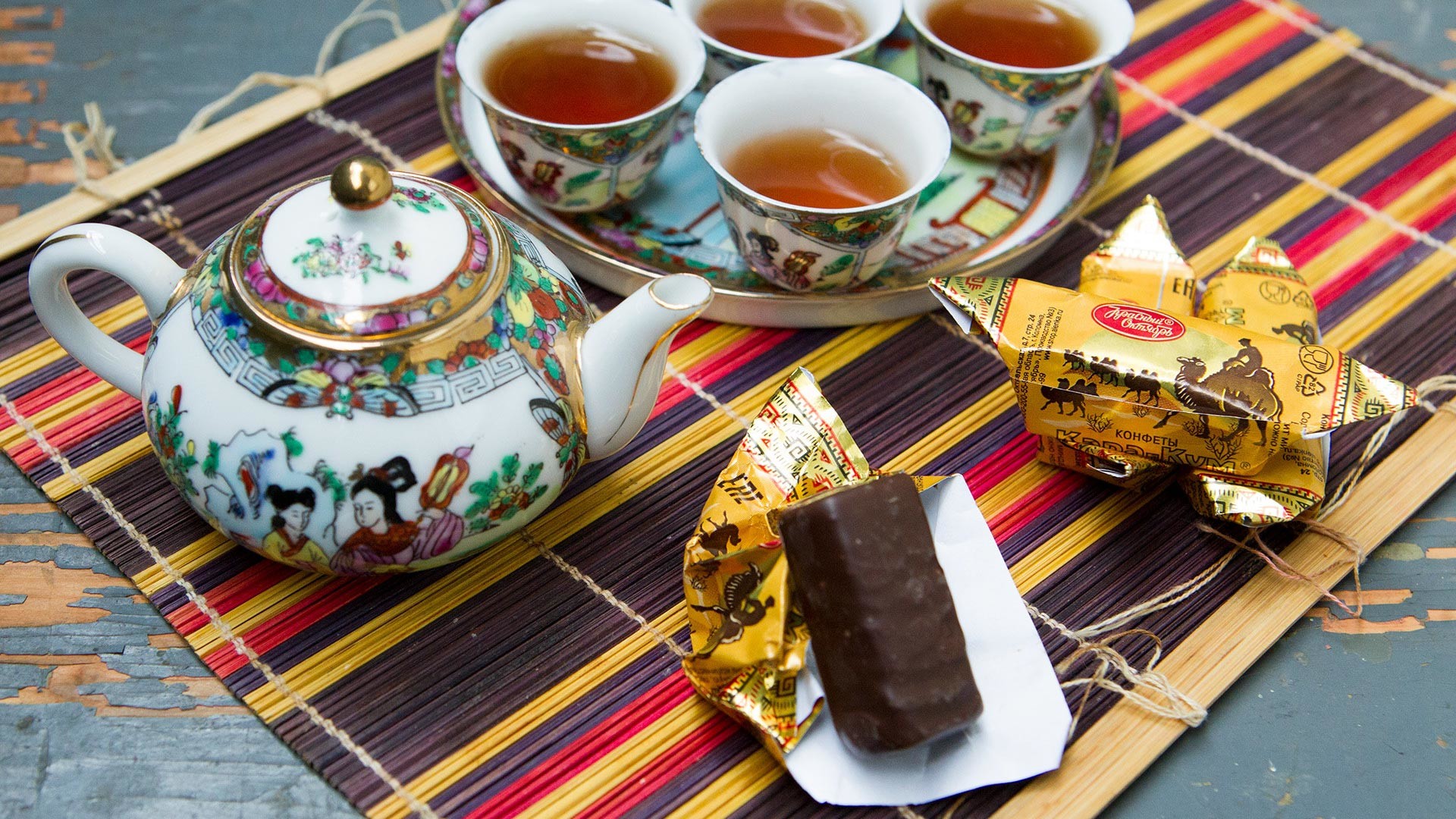
Kara-Kum is actually the name of a desert in Turkmenistan and literally means "black sand". The candies are indeed dark in color, covered with a chocolate glaze. The filling consists of praline with added cocoa and crushed wafers that give them a "sandy" crunch.
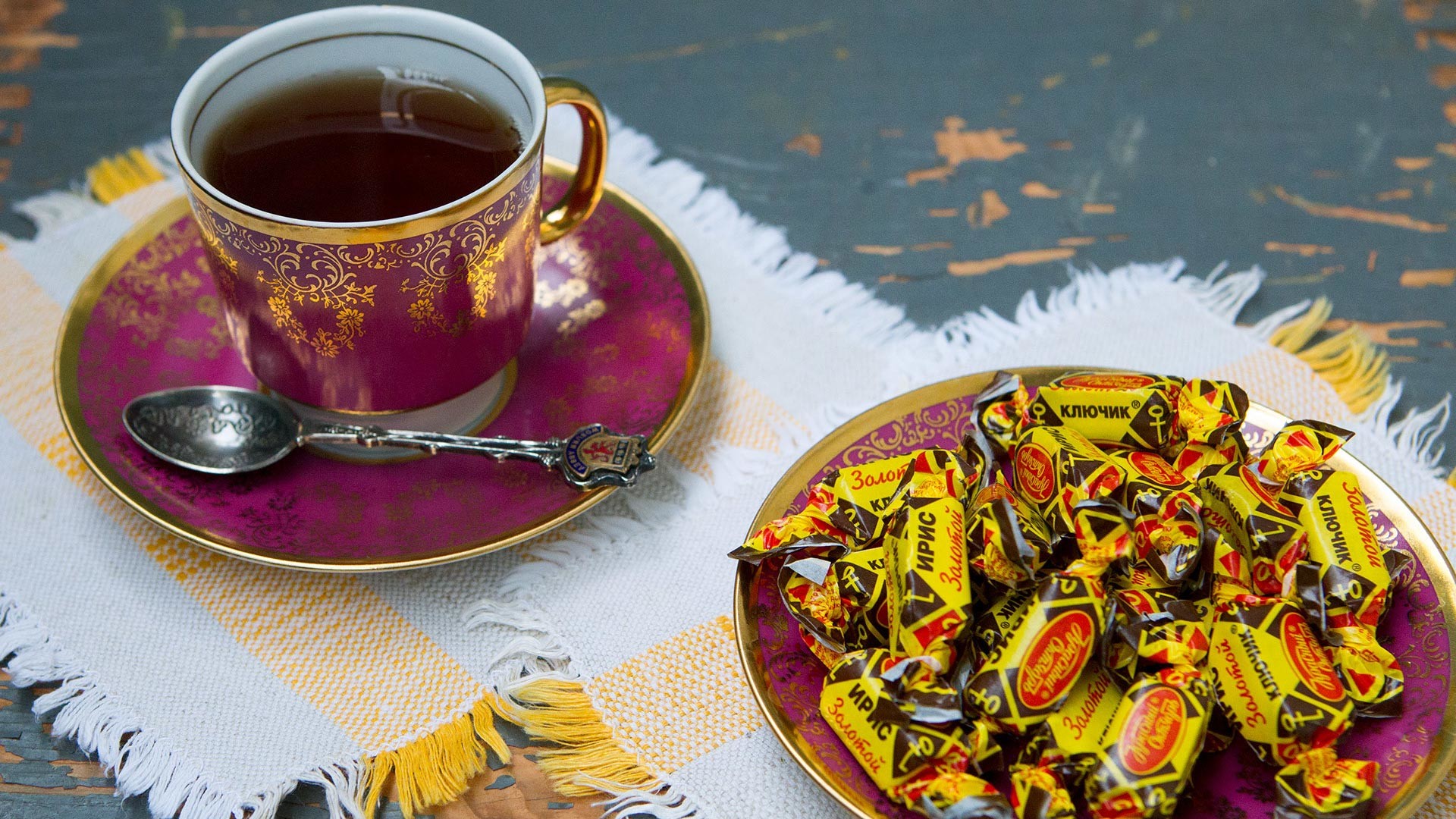
In the USSR these toffees were the most popular candies, above all because of their low price. There was one hitch - not everyone managed to get the whole wrapper off the sticky toffee, and some people chewed the candy along with bits of paper. Nowadays, this is no longer a problem, and you can easily supplement your breakfast with these sticky candies that have a soft center, caramel and condensed milk flavors.
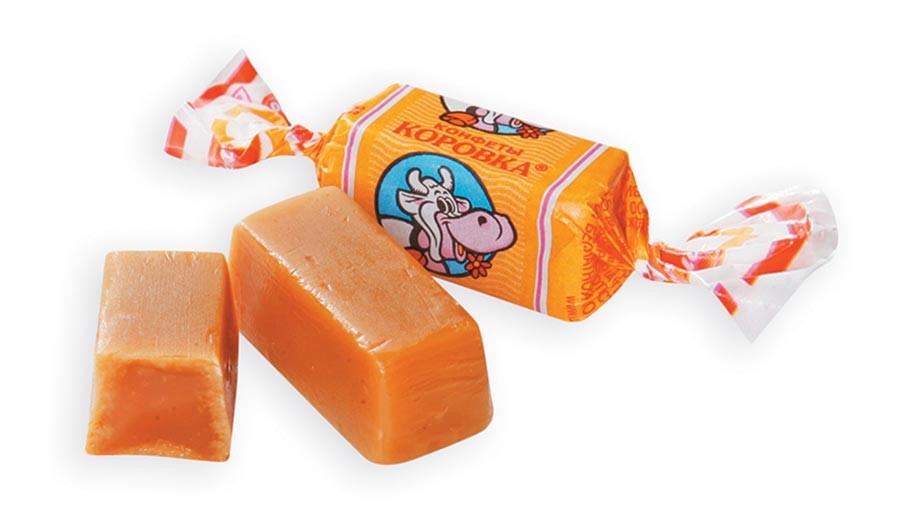
This fudge with a liquid fondant center and condensed milk flavor is a memorable part of every Russian's childhood. If you like a more liquidy and sticky filling, then buy these candies fresh. At the same time, candied korovkas that have been lying around for a while are just as good - their filling develops crunchy granules with caramel syrup.
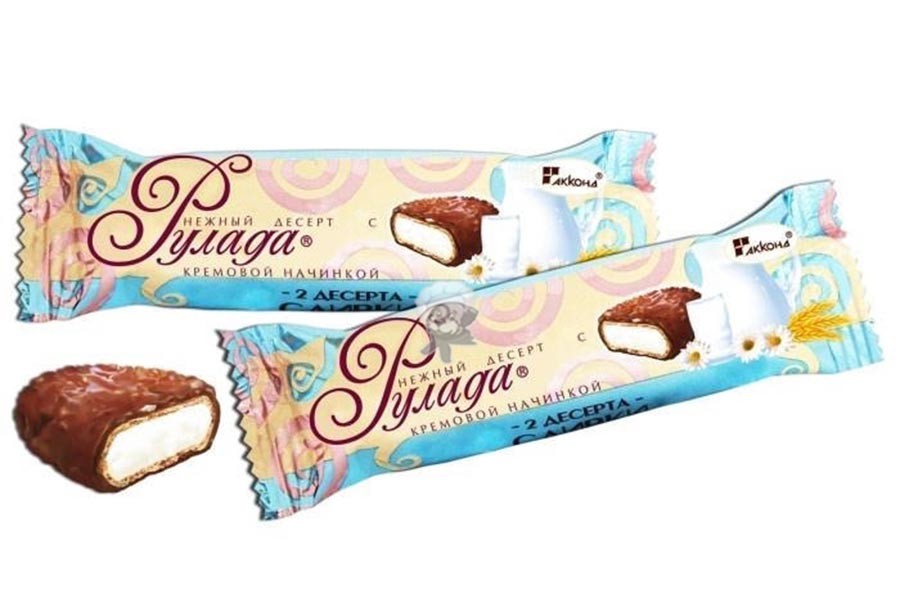
Rulada is ideal for those with a fondness for creamy and delicate desserts. The candy has a milk chocolate casing with puffed rice and nuts. Take a bite, and you'll immediately experience the taste of chocolate. A few seconds later you'll taste the delicate buttery creaminess of rulada's main filling. And yes, the candies have a very light taste, so there's a great risk that you'll eat more than you should.
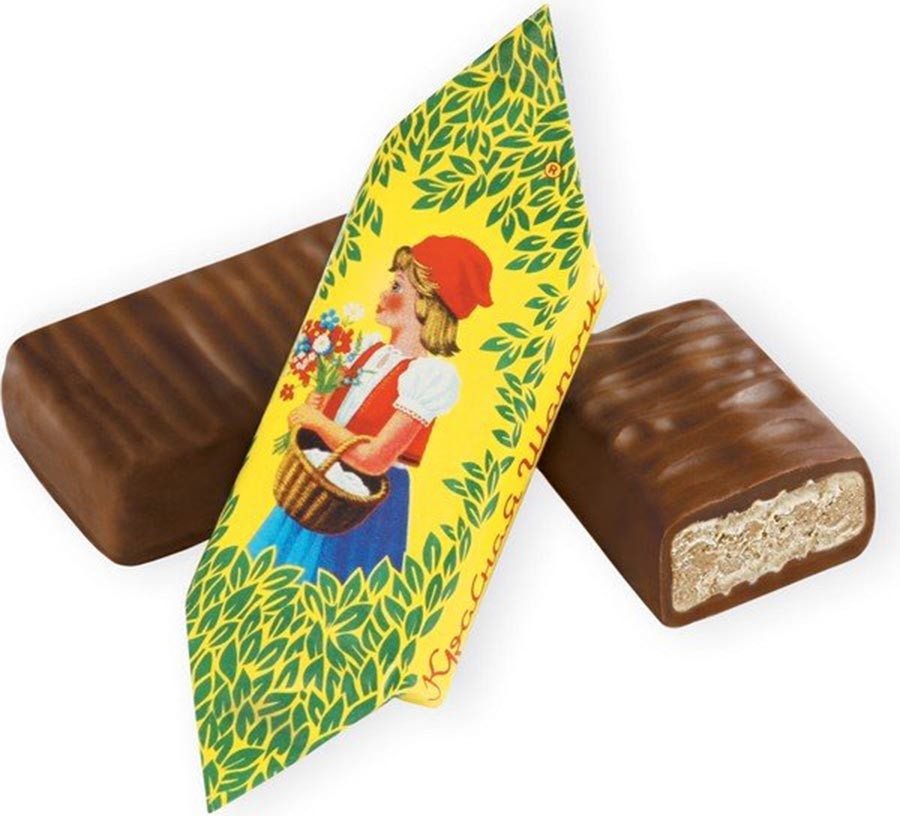
Krasnaya Shapochka is familiar not just to fans of fairy tales but also to anyone with a sweet tooth. Under its yellow wrapper depicting the girl from the fairy tale is a candy consisting of several layers of thin crispy wafers. Between the layers is a praline paste covered with a wavy chocolate glaze.
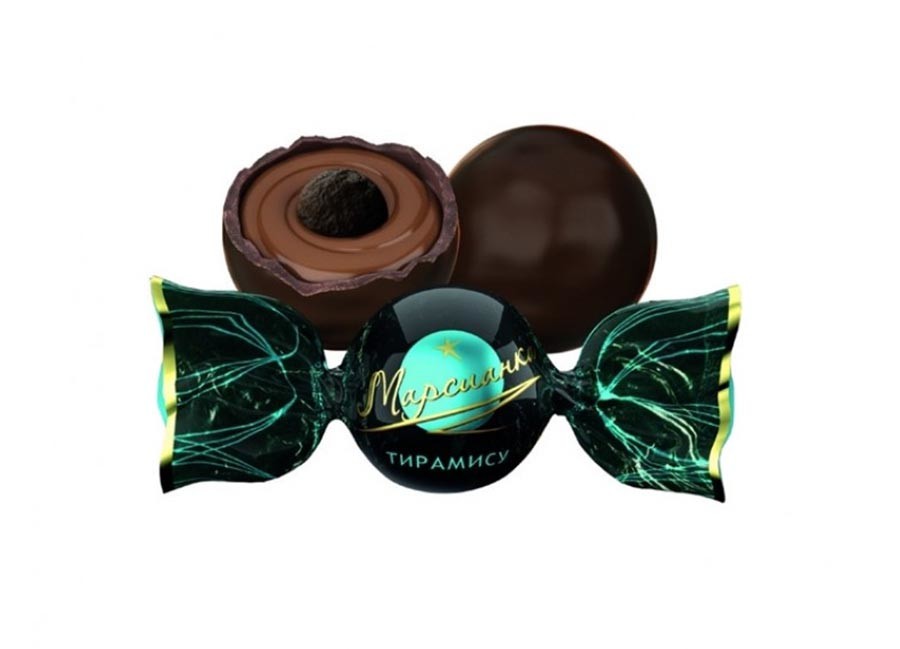
The Sladkiy Oreshek confectionery factory that makes these candies was founded only in 2000, but their candies have already become popular in Russia, primarily due to their crunchy core and delicate fillings with the flavors of favorite desserts ranging from tiramisu and cheesecake to coconut pudding. On top, the spherical candy is coated with a crispy crust of chocolate glaze.
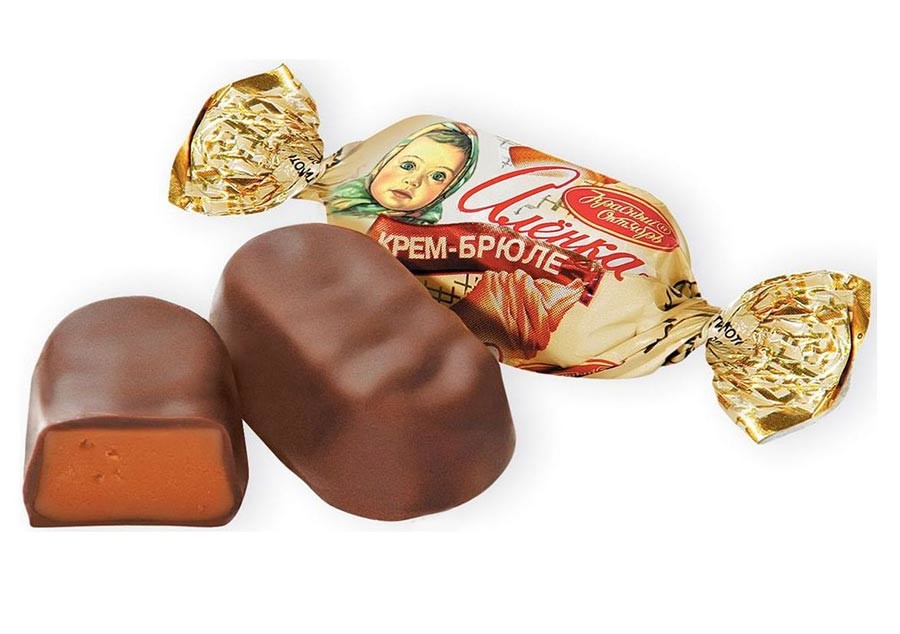
The little girl in a headscarf with wide open eyes on the wrapper of Alyonka milk chocolate bars was another confectionery icon of the USSR. The candies with the same wrapper, however, are just as tasty. They consist of cocoa-flavored milk fudge covered with a milk chocolate glaze.
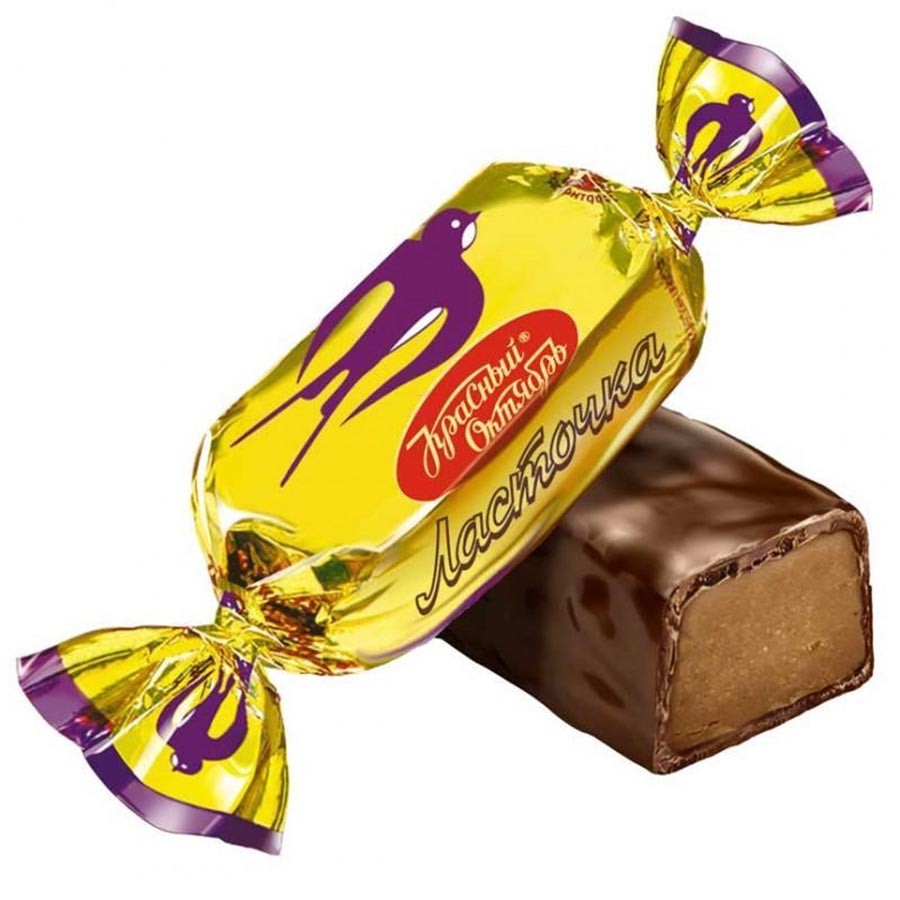
Lastochka candies are also familiar to many whose childhood happened during Soviet times. They were inexpensive for the era and people bought them in their gold-colored wrappers with the purple silhouette of a swallow both as a treat for tea and as a table decoration on special occasions. Lastochka itself is a delicate fondant crème brûlée with cocoa and orange jelly inside, all coated with a chocolate glaze.
If using any of Russia Beyond's content, partly or in full, always provide an active hyperlink to the original material.
Subscribe
to our newsletter!
Get the week's best stories straight to your inbox